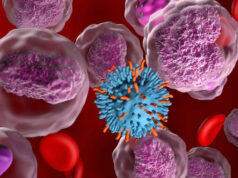 A worldwide obesity epidemic is rampant In the United States. The incidence of obesity in children and adolescents, 12 to 19 years of age, is 15.5% to 20%. The rates in other countries are similar and rising. What many people do not know is that obesity (defined in children as having a BMI above the 95th percentile) is a component of a larger Metabolic Syndrome (MS). Metabolic Syndrome is a more general condition that has a strong genetic component and is not caused by the patient’s willful disregard of diet and exercise recommendations.
A worldwide obesity epidemic is rampant In the United States. The incidence of obesity in children and adolescents, 12 to 19 years of age, is 15.5% to 20%. The rates in other countries are similar and rising. What many people do not know is that obesity (defined in children as having a BMI above the 95th percentile) is a component of a larger Metabolic Syndrome (MS). Metabolic Syndrome is a more general condition that has a strong genetic component and is not caused by the patient’s willful disregard of diet and exercise recommendations.
Metabolic Syndrome can impact on many body systems causing complications that are dangerous in the short and long term.
Cardiovascular disease, hypertension, and hypercholesterolemia can result from this syndrome. Type 2 Diabetes, fatty degeneration of the liver leading to cirrhosis, gallstones, depression and sleep apnea are a few which have the potential to dramatically affect life style.
One of the conditions that is prominent in adolescent girls with MS is Polycystic Ovarian Syndrome (PCOS). Young women with this constellation of symptoms demonstrate irregular periods, acne, hirsuitism (hair in unwanted places) and weight gain that is difficult to lose or manage even with diet and exercise. Fertility problems are commonplace. This syndrome is caused by an increase in insulin resistance (also a factor in most cases of obesity) and an increase in androgens (hormones the are predominantly in men but are also present in normal females in small amounts).
Patients with this syndrome have loss self-esteem, resulting in withdrawal from peers, and many also develop depression. They do not want to be seen in the gym or other athletic venues, thus compounding the situation.
PCOS can be treated. There is help for these children, adolescents and young adults. We start by taking a complete history of the child from birth, a detailed family history, a comprehensive physical examination and analysis of specialized laboratory tests. Other diseases can mimic PCOS and must be ruled out.
The recommendations, if this condition is suspected, vary individually. PCOS may get better or worse at certain times, but it does not go away. The initial step is to consult a pediatric endocrinologist who has experience in treating these conditions.
Those who suffer from PCOS should know that there is help and it’s not their fault. An improved, less guilt-ridden quality of life may be as close as making an appointment. If I can answer any questions please call my office: (732) 923-1170.
Malcolm S Schwartz, D.O., F.A.O.C.P is located at 133 Pavilion Avenue, in Long Branch, NJ.



